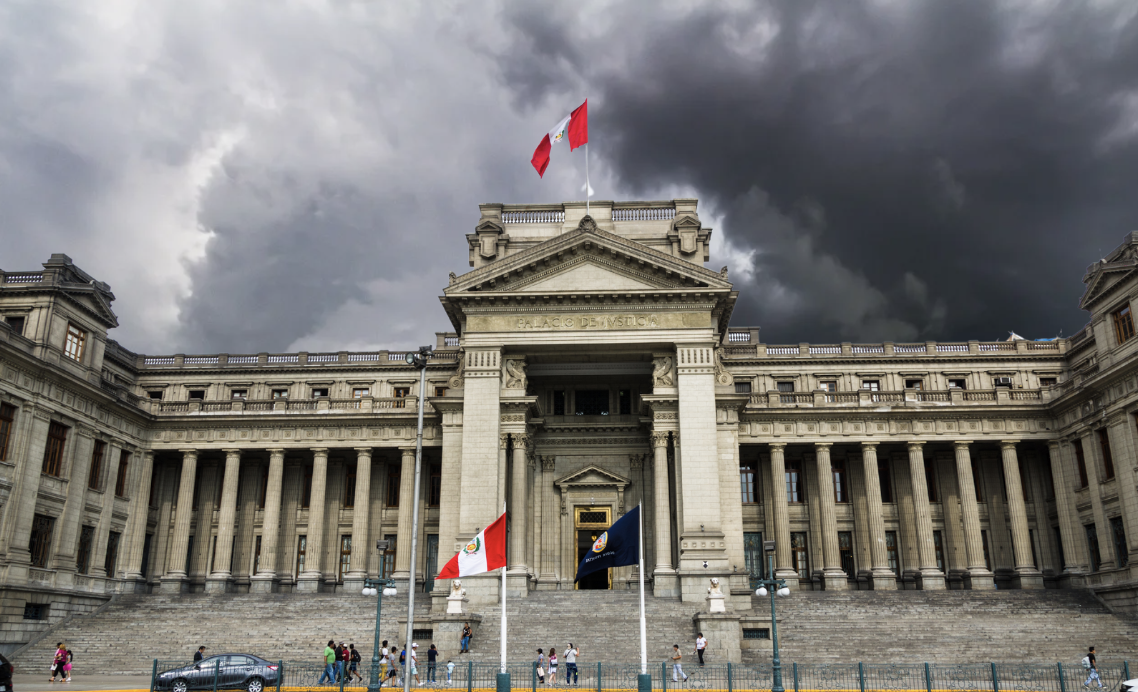Dismantling Peru’s most successful asset recovery law is a step backwards for the country – and justice

Sometimes it seems like high-level support for the fight against corruption and crime is being turned on its head. That includes in Peru, a close partner country of the Basel Institute on Governance for more than a decade.
A flagship achievement in this time has been the adoption of a new non-conviction based forfeiture law in 2018, Extinción de dominio, and its rollout across the country via a judicial subsystem including decentralised and specialised prosecutor’s offices, tribunals and appeals courts.
Peru’s Extinción de dominio law is widely seen as a gamechanger in the fight against corruption and serious organised crime. Last year, the Attorney General applauded the law’s use to recover USD 94 million in illicit assets. It has been applied in both domestic and international cases that have set important precedents and bolstered the message that crime doesn’t pay.
Since the adoption of the United Nations Convention against Corruption (UNCAC) in 2003, non-conviction based forfeiture has become an international standard. The Extinción de dominio law is based on a common model in Latin America that was first introduced by the United Nations Office on Drugs and Crime (UNODC). It aligns with the requirements of the Financial Action Task Force (FATF), whose updated Recommendations 4 and 38 now make non-conviction based forfeiture legislation mandatory. GAFILAT, the Latin American chapter of the FATF, has also recognised the usefulness of this tool in the Latin American context.
Yet now it is on a cliff edge, on the verge of being dismantled or weakened to the extent that it is almost useless.
Fighting against the rule of law
At the end of 2024, we warned of an attack on Extinción de dominio in the form of Bill 3577-2022. This seeks to amend Peru’s Extinción de dominio legislation by, among other things, making its application conditional on a criminal conviction.
In doing so, the Bill distorts the legal concept of non-conviction based forfeiture. By introducing a criminal conviction as a basic condition for its application, the bill renders the current law (almost) useless. It introduces a fundamental contradiction that lacks logic or legal justification. Similar restrictions have been introduced in Ecuador recently, which have drastically reduced the scope of the law’s application.
Unfortunately, the Bill was passed by Congress at a second reading on 10 April 2025, despite concerns raised by the Attorney General’s Office, Judiciary and even the President.
At this point, it is unclear whether the Bill will affect only future cases or whether it will impact the thousands of ongoing cases at the national and international levels. Legal principles and common sense would suggest the former, but the entire process of amending the law has been driven more by political than legal considerations.
Potential consequences
What seems clear is that the defence lawyers of those impacted by the new Bill will soon take action to release assets currently secured by preventive measures.
This includes high-profile political figures, such as former presidents convicted of corruption in the Lava Jato (Odebrecht) corruption scandal. For example, assets seized by specialised Extinción de dominio prosecutors in relation to the recent conviction of former President Alejandro Toledo risk being released.
It's not only about corruption. Ongoing Extinción de dominio proceedings are also targeting illicit assets linked to other forms of serious and organised crime, like drug trafficking and environmental crimes such as illegal fishing, mining and deforestation. These cases too would fall by the wayside.
What’s the rationale?
Like any novel law, there have been some inconsistencies and concerns around its application in practice. I explored these concerns in a recent Working Paper and argued for closer alignment with international human rights standards in order to ensure trust and legitimacy, as well as international cooperation.
These concerns were triggered by the law’s application in practice, not by its concept or legal/social legitimacy. In brief, the issues fall into two camps:
- Technical: Prosecutors and judges have in some cases applied criteria that are not in line with those developed by human rights tribunals. Analysis of flawed cases shows that it has been applied to confiscate assets of innocent third parties or of companies due to the fault or negligence of their employees. Specialised training for relevant prosecutors and judges on sensitive and technical issues such as the infringement of fundamental rights would go a long way to eliminating this risk.
- Political: One reason for the above issue is the emergence of a “tough” discourse against organised crime. This attracts many supporters and gives rise to populist rhetoric of efficient law enforcement against the “bad guys". It has led to misperceptions that the Extinción de dominio law is a cudgel to wield against organised crime. The consequences are a small number of violations of international standards that have given opponents a valid argument to attack the essence of the law, even though the errors stem from its implementation.
Criticism is the basis for continuous improvement, so we welcome the raising of these concerns through open discussion. We believe that addressing them should be a priority and will ultimately make the law more effective.
The Basel Institute has actively supported initiatives to do this, for example through conventions of judges and prosecutors and through open dialogues with experts, as well as through our participation in GAFILAT and other relevant asset recovery forums.
Wider implications
In my view, and the view of many of my counterparts across Peru and the region, this attack on Extinción de dominio will have a disastrous impact on the fight against corruption and other serious crime in Peru. As well as potentially destroying or diminishing ongoing cases, it eliminates the deterrent effect of asset recovery laws and opens the door to impunity.
It will also likely harm Peru’s international standing. The FATF’s updated Recommendations 4 and 38 not only make the adoption of non-conviction based forfeiture laws mandatory; the FATF has made it clear that such a law must also be operational and effective, and it must respect human rights. The Bill is contrary to the letter and spirit of these Recommendations and deeply contradicts them.
This legislative setback is expected to affect Peru’s performance in its upcoming fifth-round mutual evaluation by the FATF. The consequences of this could have significant reputational and economic consequences for Peru, particularly if it is grey listed.
Reasons for hope
My first hope is that the amendments are not ratified by the President of the Republic, who has the constitutional power to veto them.
A second source of hope is the judicial branch. Resistance can be expected from frontline judges in specialised Extinción de dominio lower courts, given that the legal actions to unfreeze assets mentioned above will most likely be decided in these courts. Ultimately, it will probably be the Supreme Court or the Constitutional Court that will determine if and when the new Bill will be applied and rule on its compatibility with the constitution and international law.
Finally, there is hope of support from the international community, as this issue is relevant not only for Peru. It is also a critical issue for other countries seeing similar attacks on laws that are proven to be effective against high-level corruption and organised crime.
Learn more
- Working Paper 54: Targeting illicit wealth through non-conviction based forfeiture by Oscar Solórzano explores Extinción de dominio laws in Latin America and argues for their closer alignment with international human rights standards to foster trust and legitimacy.
- View a series of conversations on YouTube by experts of the Basel Institute’s International Centre for Asset Recovery debating the topic.
- See Oscar Solórzano’s 2024 statement in Spanish on this issue.



